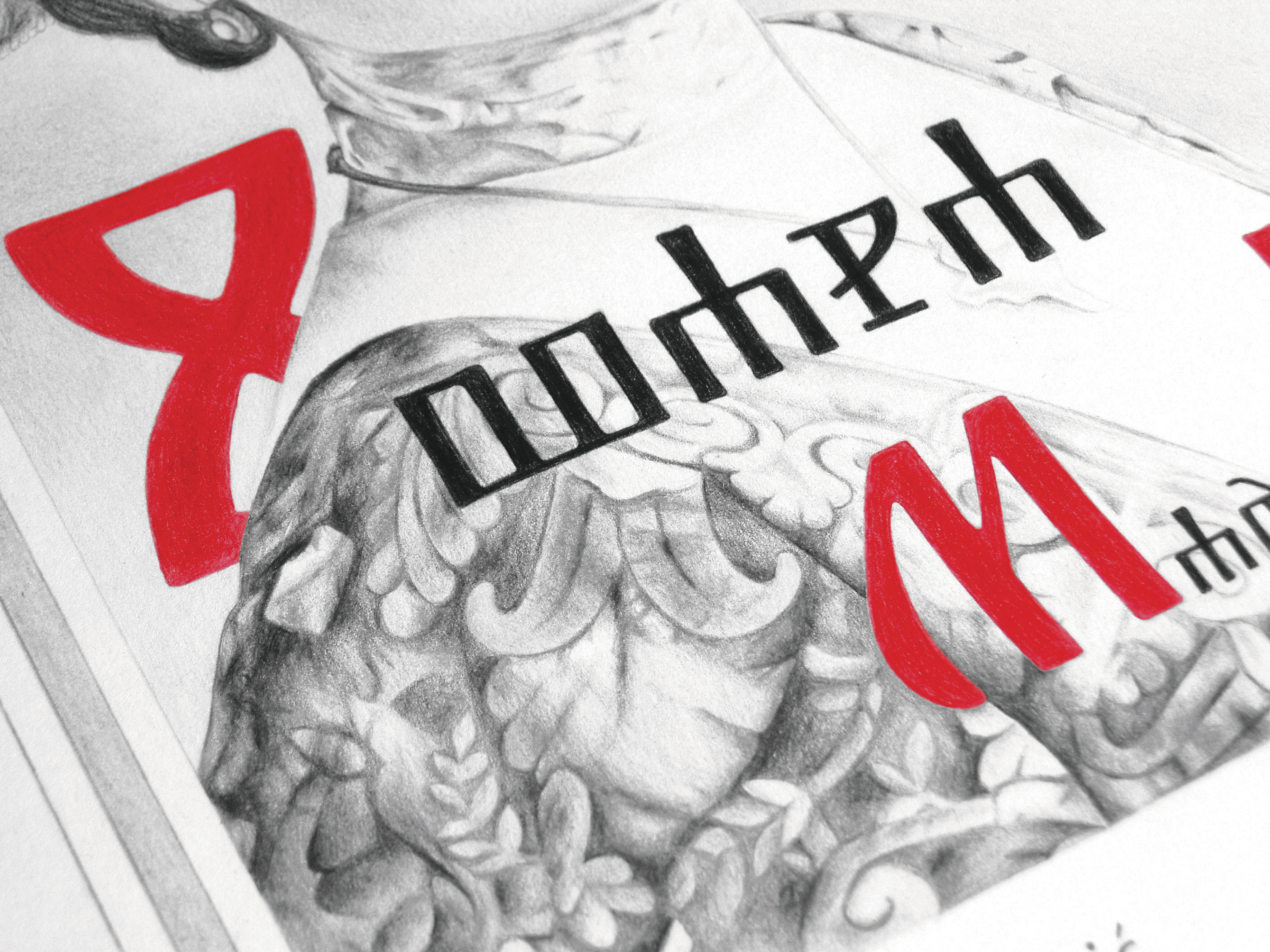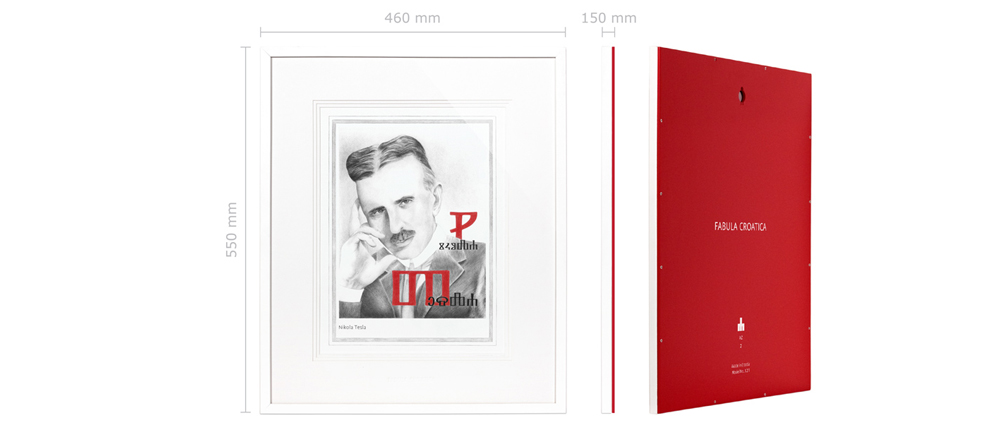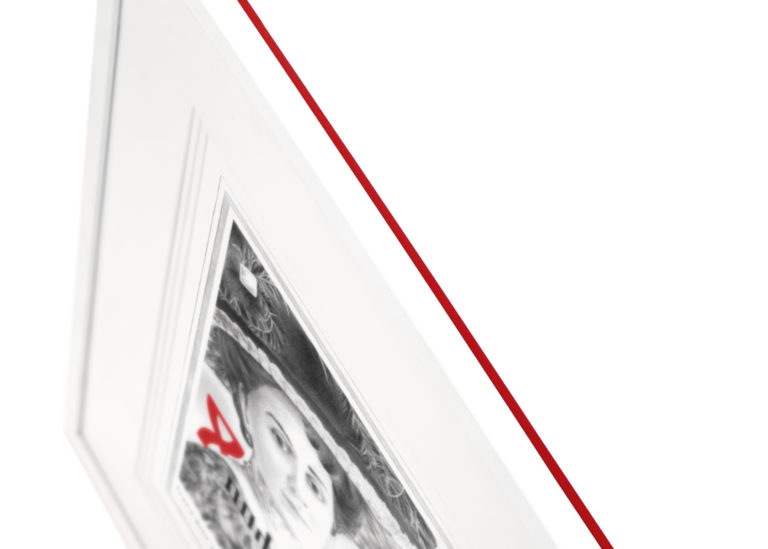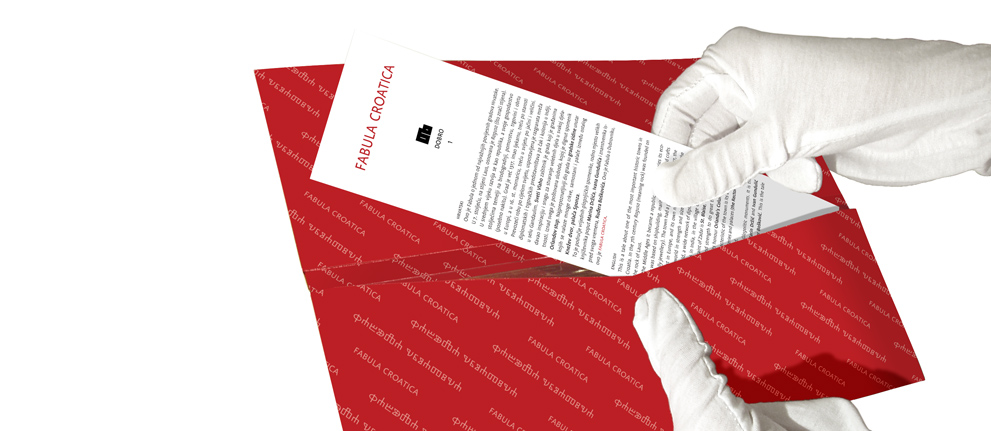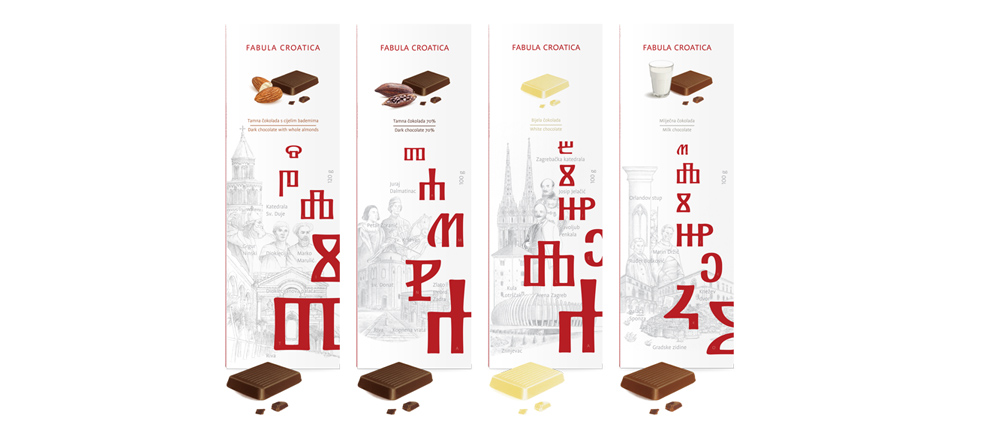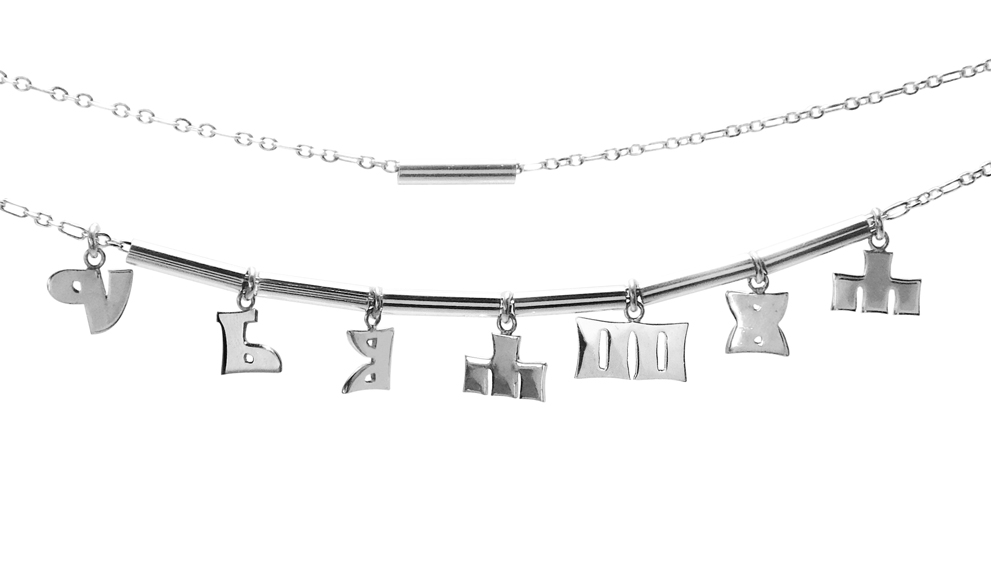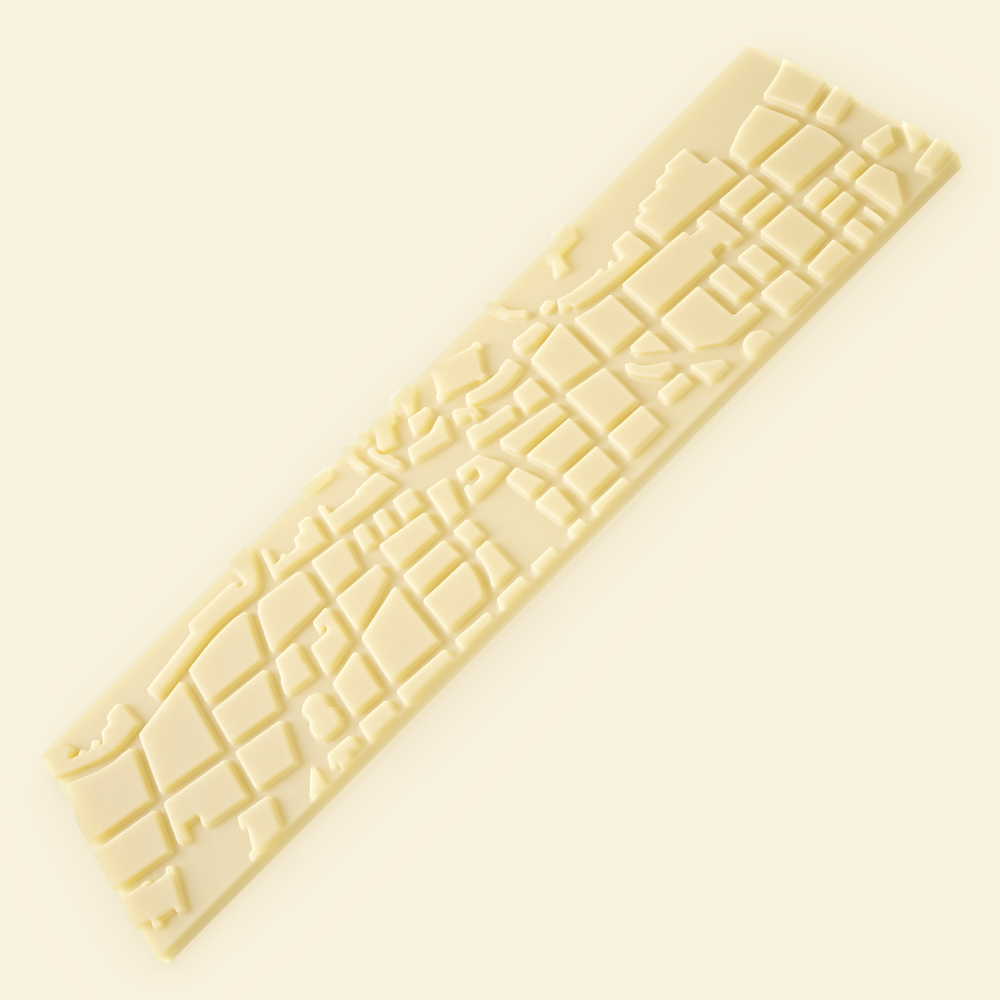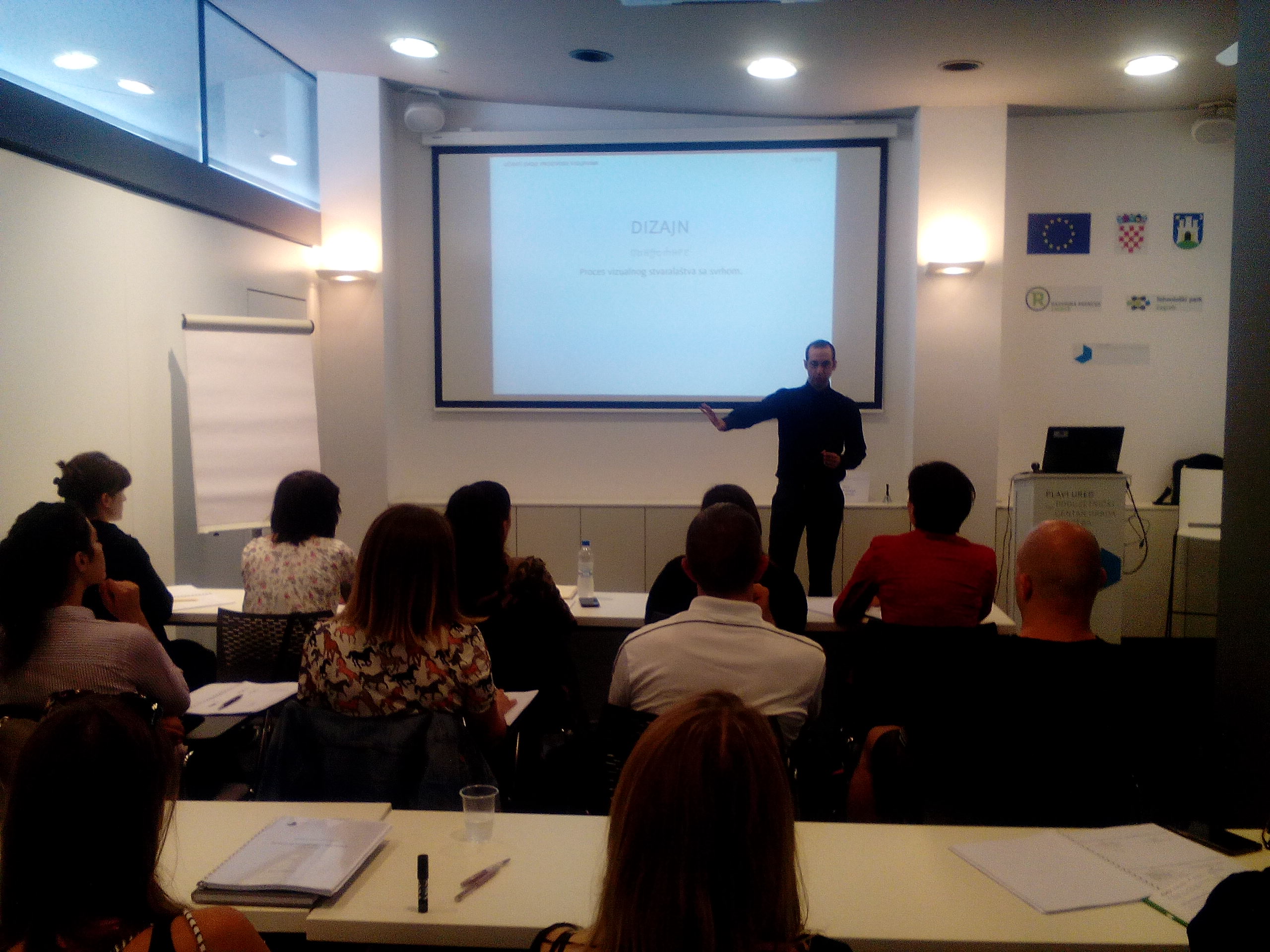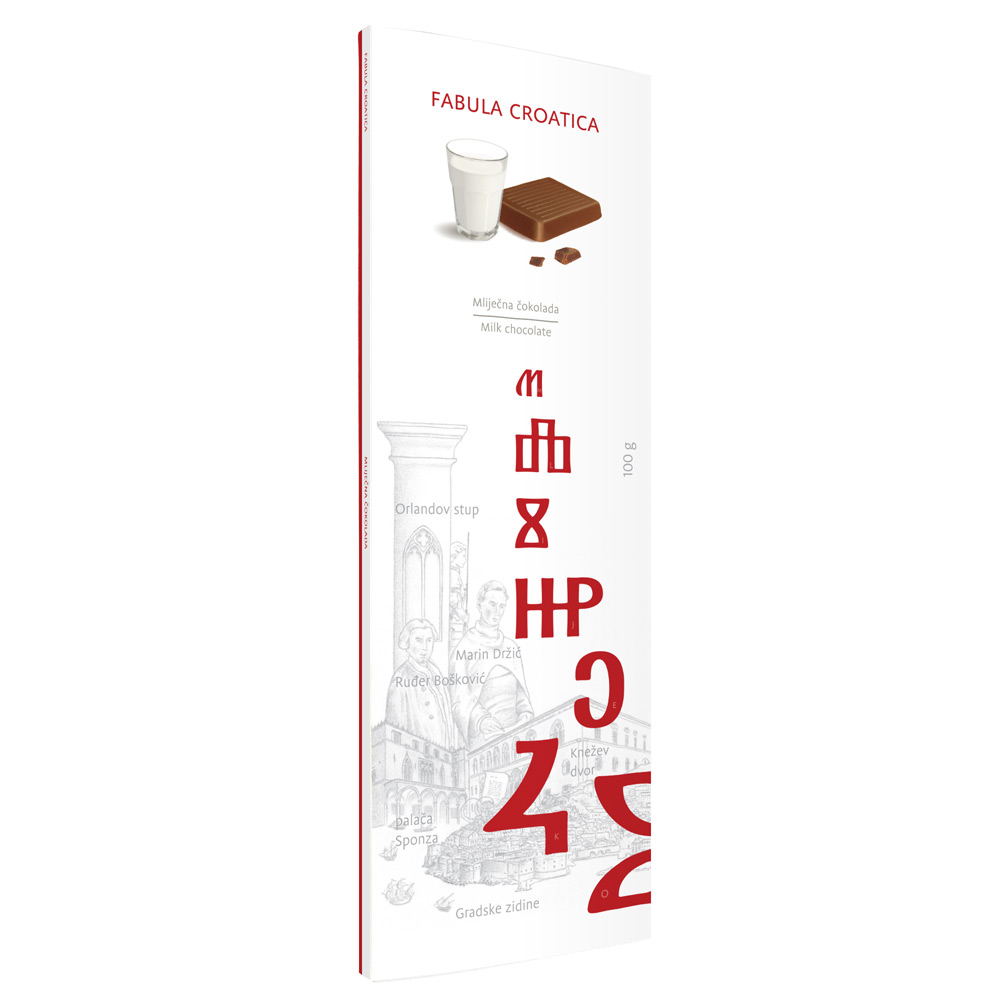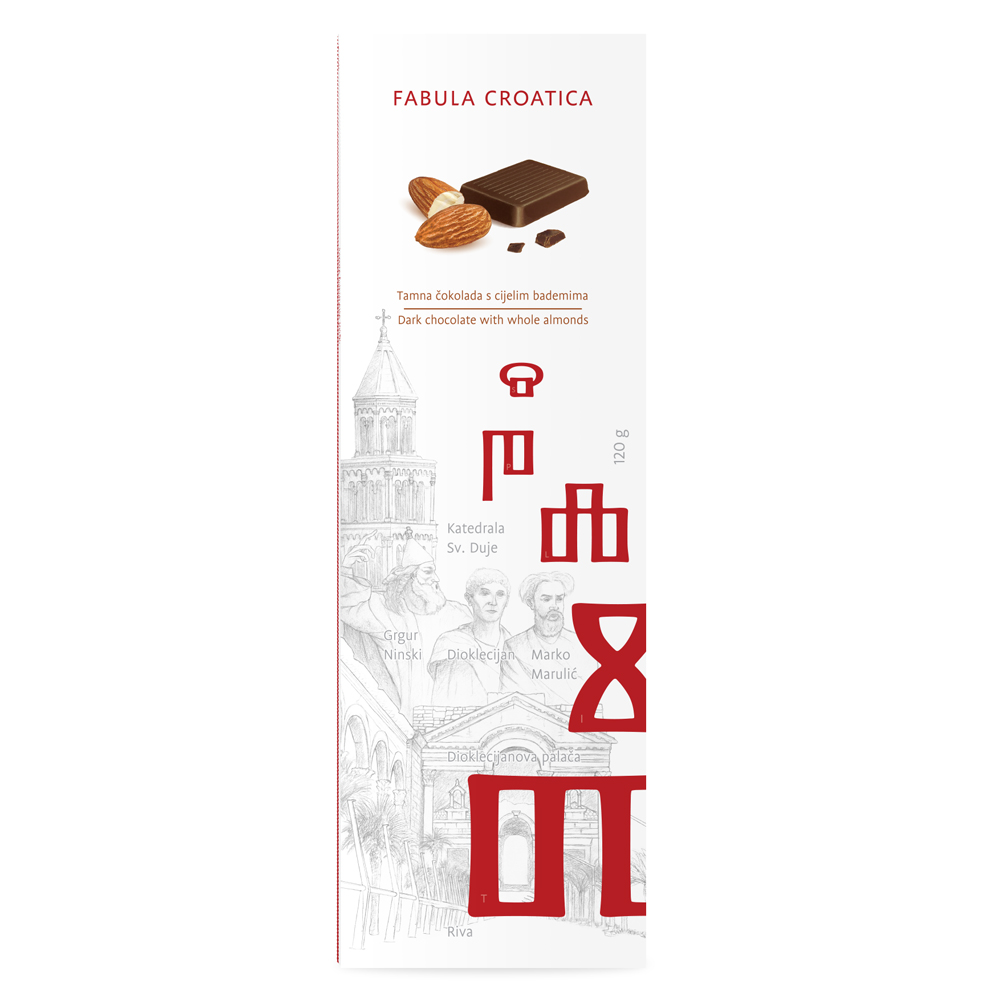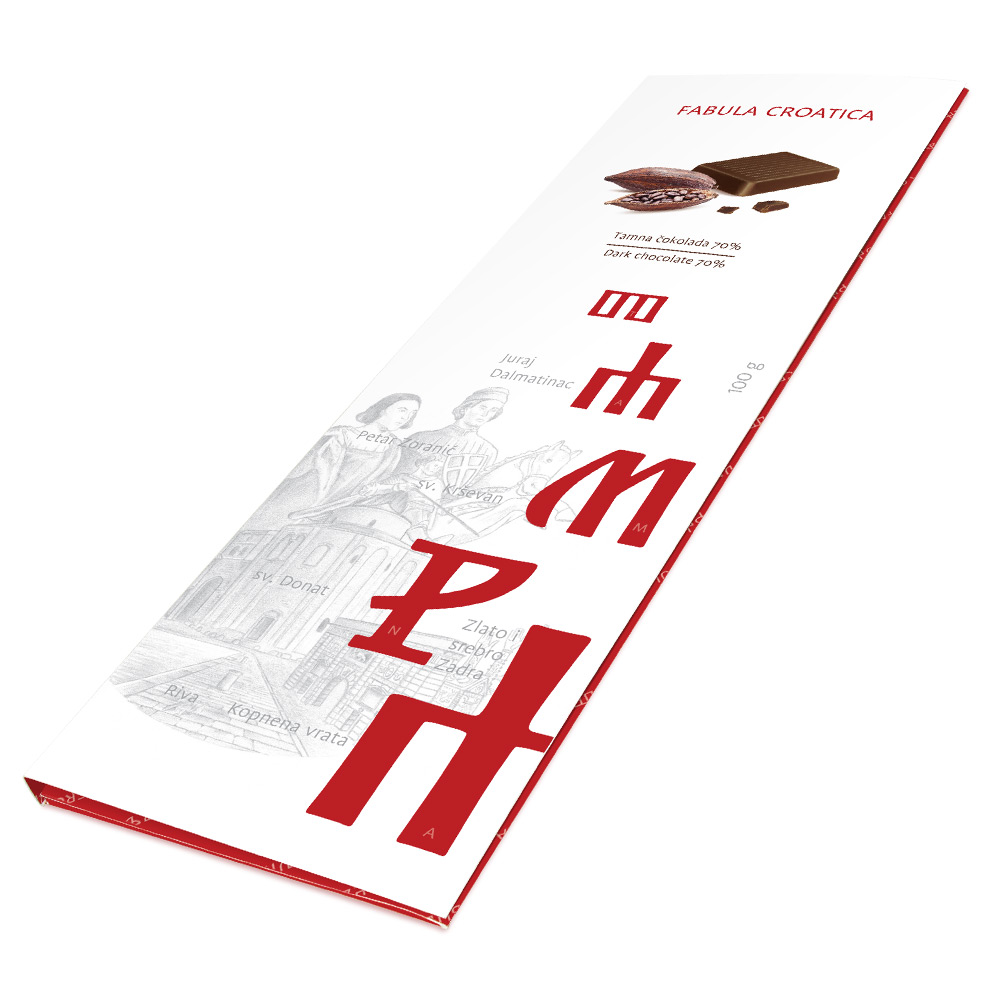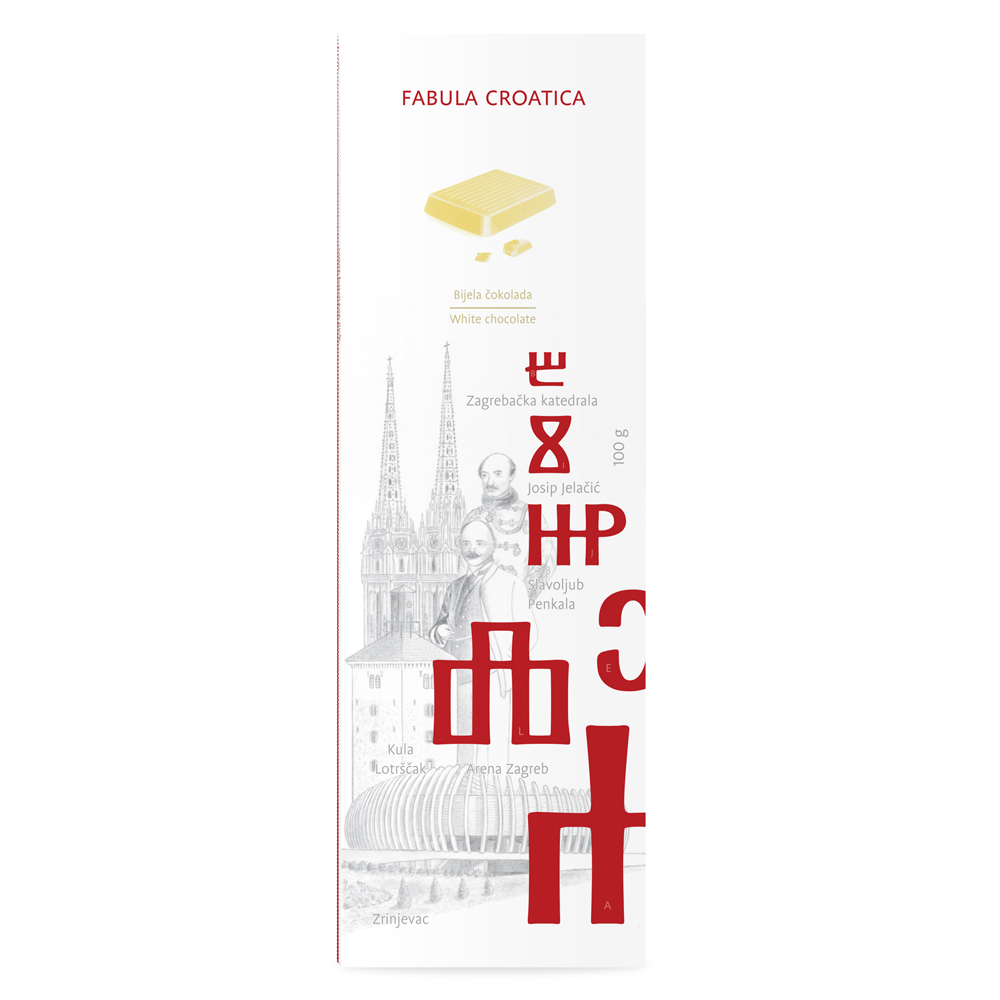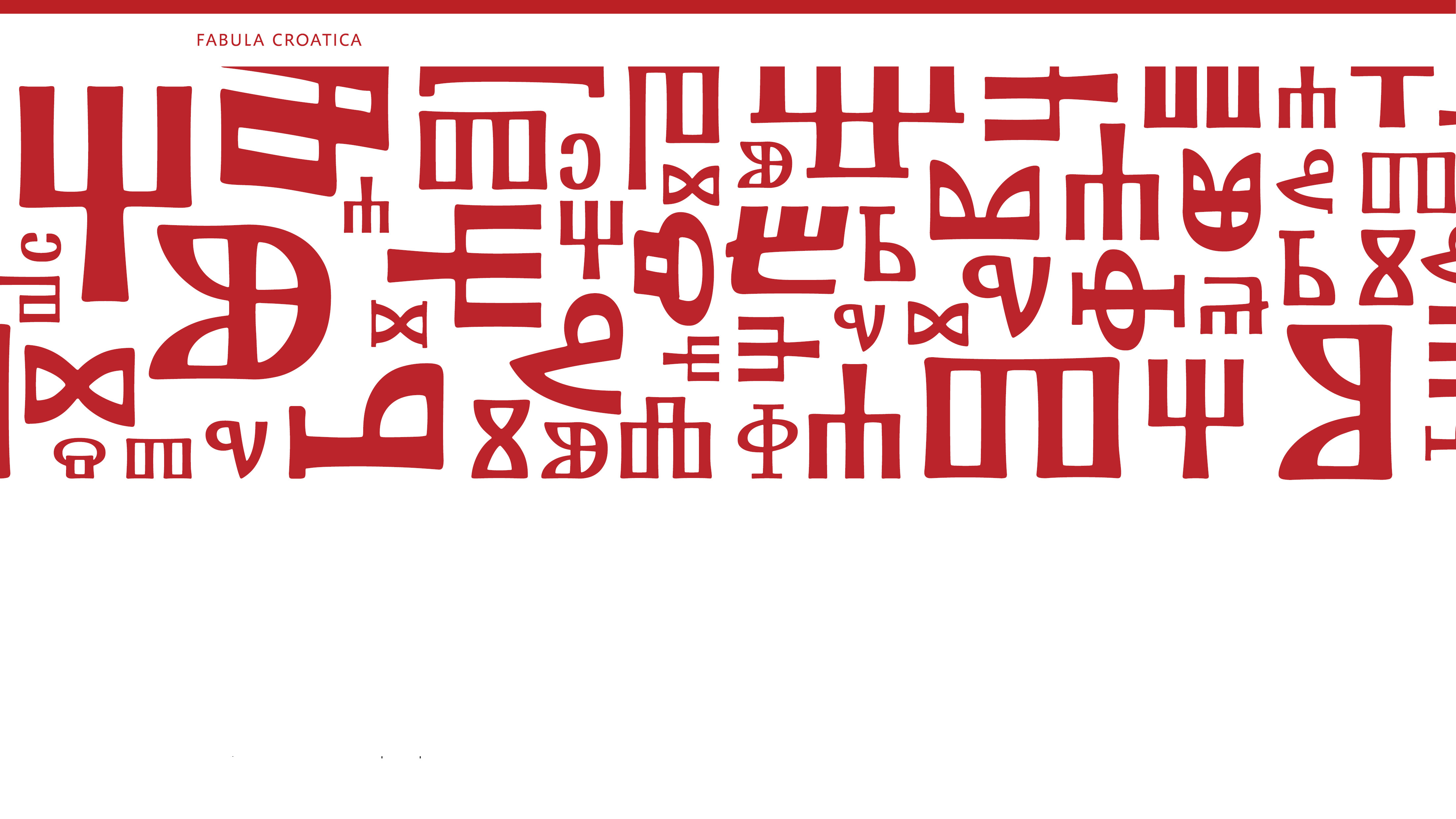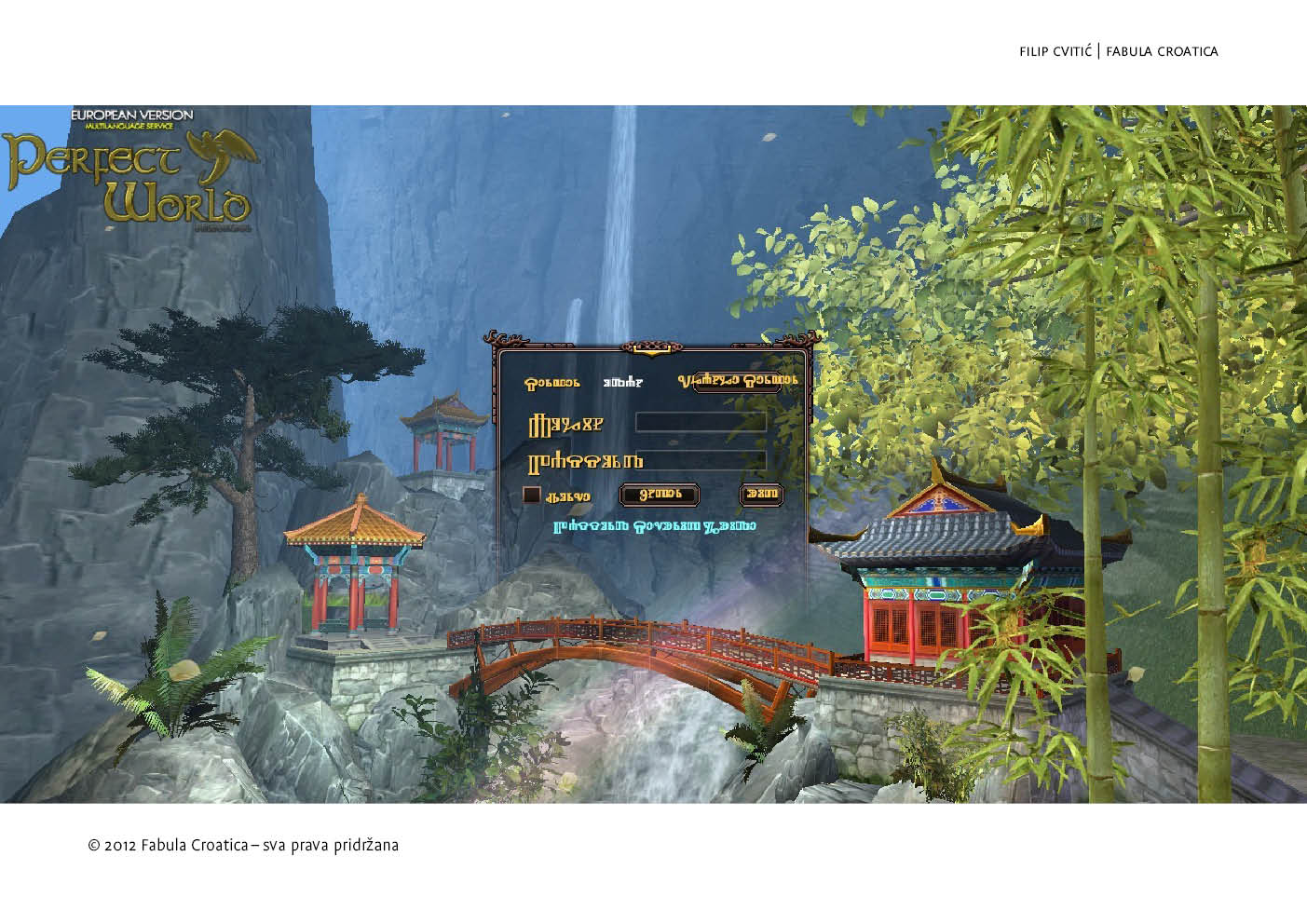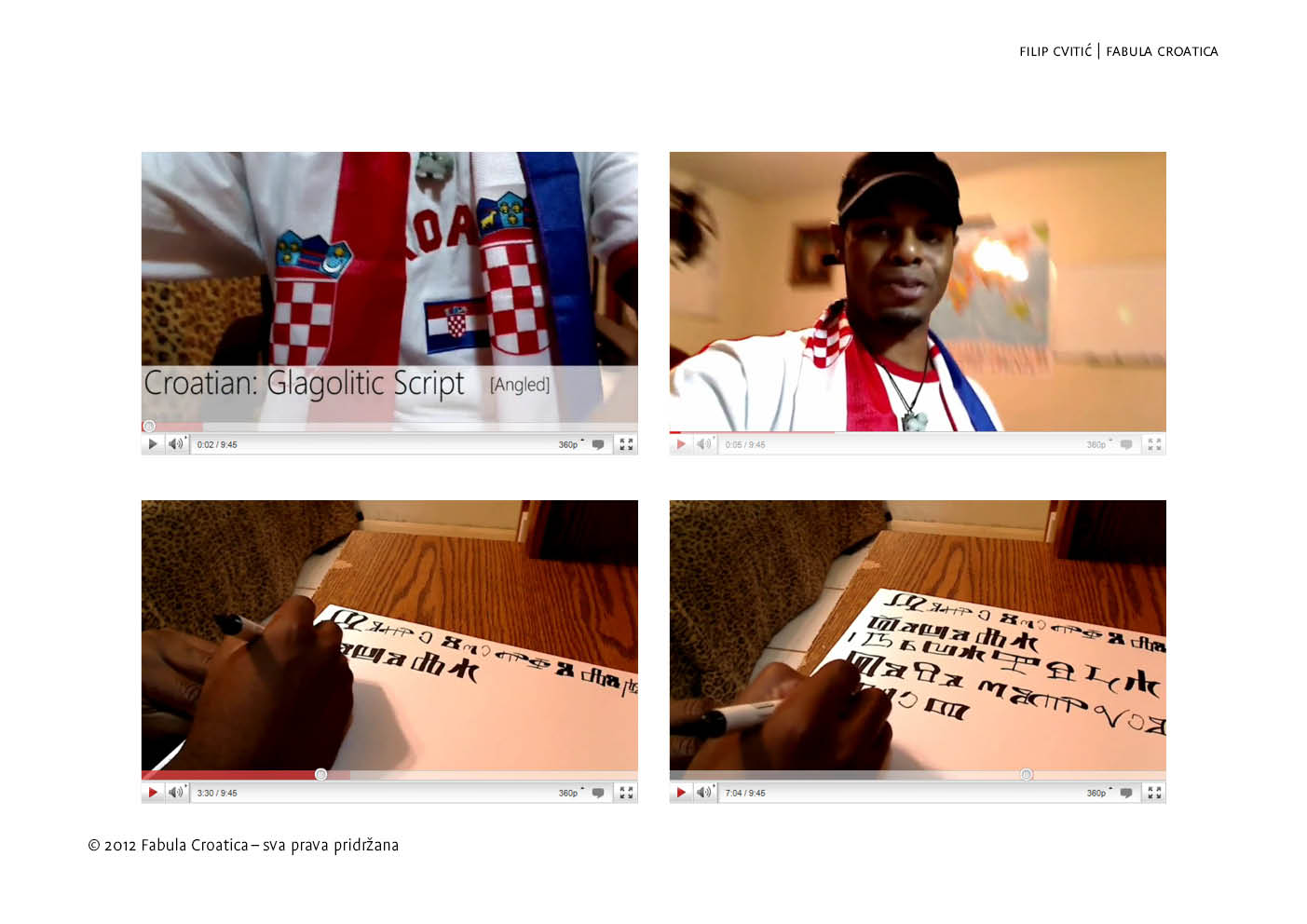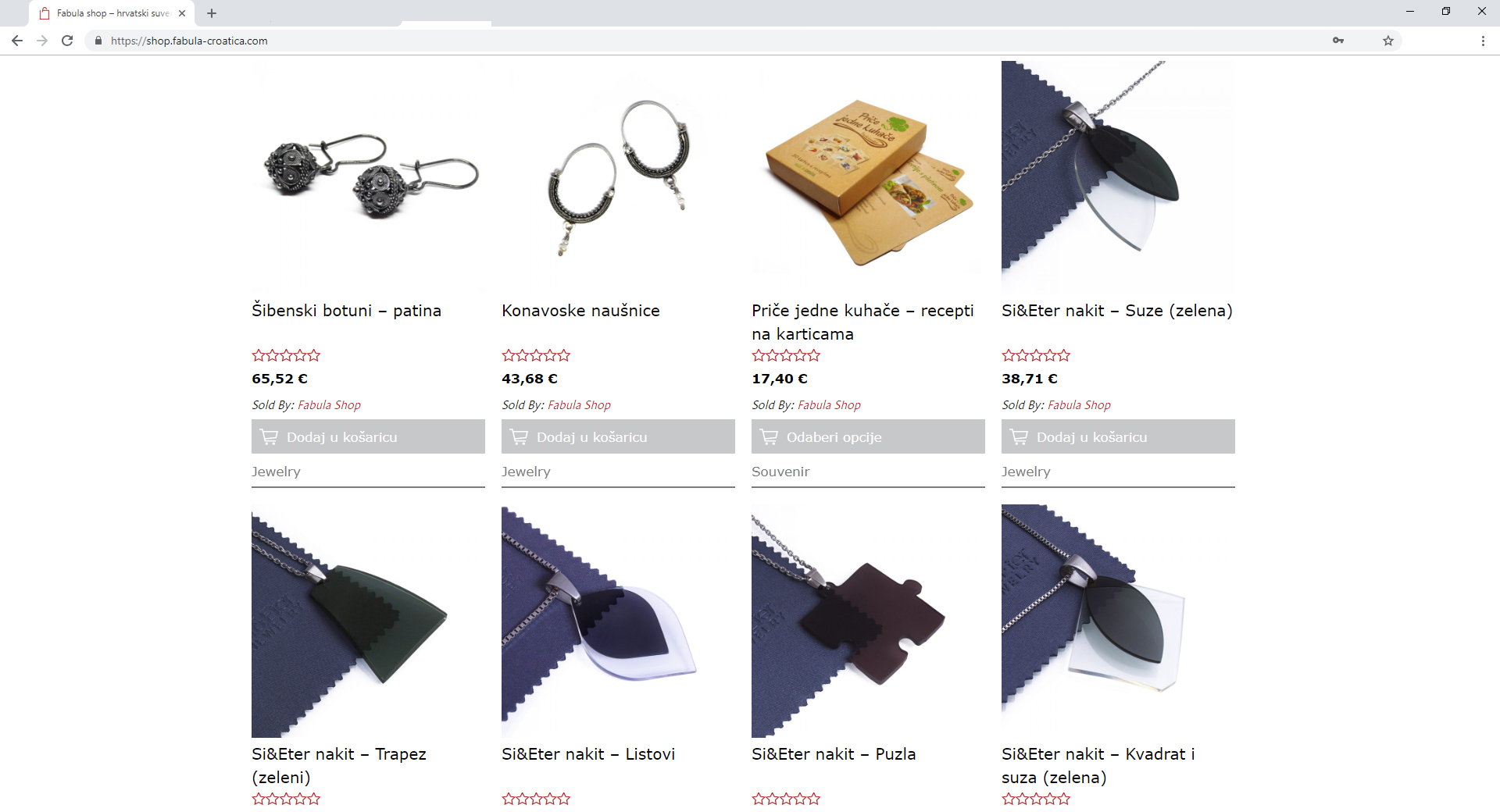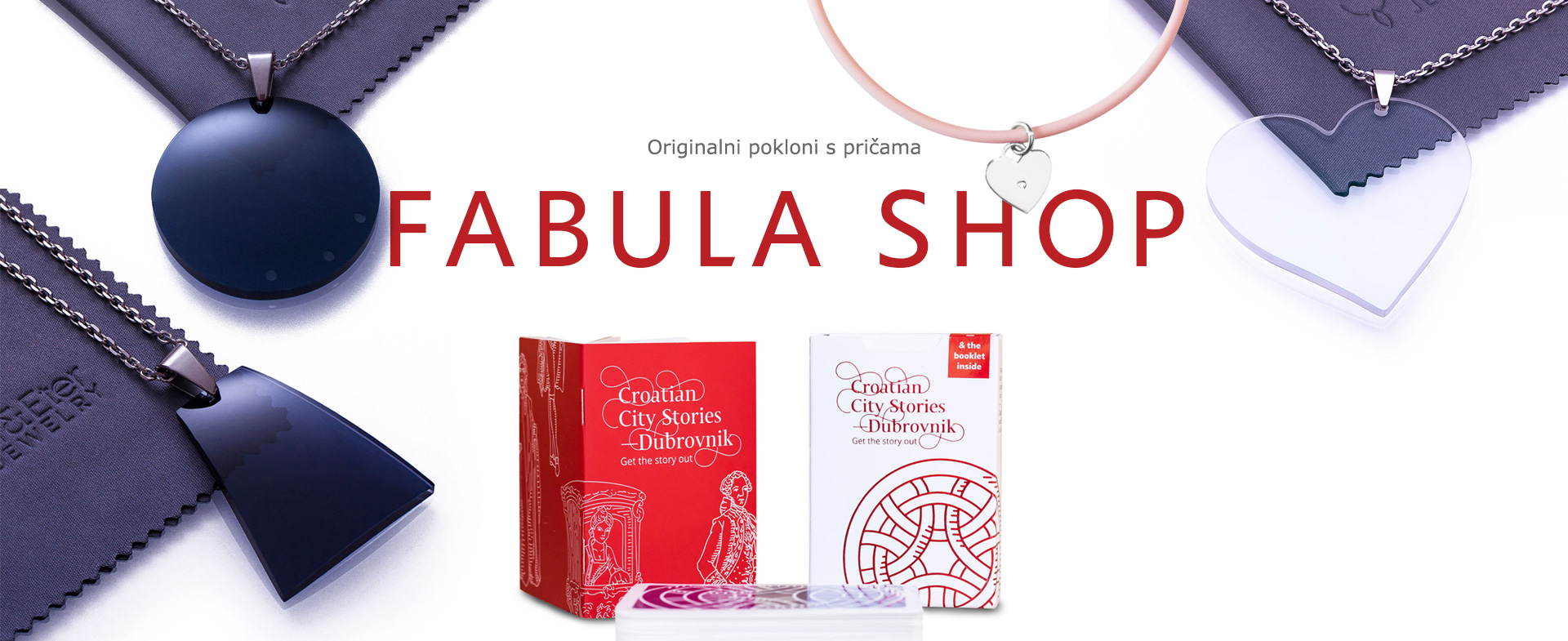Regaining a sense of belonging
Fabula Croatica
Fabula Croatica - Cultural Heritage in the Digital Age: An Opportunity for Europe
Cultural heritage often remains confined within national borders, limiting its global potential. Modern digital technologies enable cultural heritage to transcend these boundaries, making it accessible to a wider audience. The Fabula Croatica project exemplifies this approach by integrating the Glagolitic script into a broader cultural context. It aims to promote Croatian heritage internationally and serves as a model for other countries to present their cultural heritage.
Croatia
National
It addresses urban-rural linkages
It refers to other types of transformations (soft investment)
Yes
2025-01-02
No
No
No
As an individual
Overall Aim:
Fabula Croatica is a project that redefines and promotes Croatian cultural heritage by using digital tools, design, and storytelling. By integrating the ancient Glagolitic script into contemporary products and platforms, the project aims to transform heritage into a recognizable and globally accessible brand.
Target Group(s):
The primary users are technologically literate individuals aged 24 to 45 who frequently search for products online. These busy users rely on mobile phones for efficiency and organization. They appreciate cultural heritage, tradition, and authentic, locally made products that reflect their national identity. Nostalgic about their heritage, they wish to pass it on to their children, friends, and future generations. They seek unique, high-quality products that serve as meaningful mementos of an event, holiday, story, or person. Additionally, they are conscious consumers who support local businesses and value having a tangible connection to history.
Specific Objectives:
Modernize and globalize Croatian heritage through visual communication and digital tools
Create innovative products that connect heritage with contemporary design
Engage new audiences through storytelling, education, and interactive platforms
Develop the Fabula Shop, an e-commerce platform that promotes Croatian cultural products and creators
Achieved Outcomes:
Public Engagement: Increased awareness of the Glagolitic script through educational initiatives
Product Innovation: Development of cultural product lines like AZ (inspirational figures), CI (jewelry based on myths), and DOBRO (heritage-inspired food products)
Education & Design: Introduction of Design Fabula Croatica, a learning program for students
Global Accessibility: Fabula Shop as a digital marketplace for cultural storytelling and product promotion
By merging tradition with technology, Fabula Croatica positions Croatian heritage
Fabula Croatica is a project that redefines and promotes Croatian cultural heritage by using digital tools, design, and storytelling. By integrating the ancient Glagolitic script into contemporary products and platforms, the project aims to transform heritage into a recognizable and globally accessible brand.
Target Group(s):
The primary users are technologically literate individuals aged 24 to 45 who frequently search for products online. These busy users rely on mobile phones for efficiency and organization. They appreciate cultural heritage, tradition, and authentic, locally made products that reflect their national identity. Nostalgic about their heritage, they wish to pass it on to their children, friends, and future generations. They seek unique, high-quality products that serve as meaningful mementos of an event, holiday, story, or person. Additionally, they are conscious consumers who support local businesses and value having a tangible connection to history.
Specific Objectives:
Modernize and globalize Croatian heritage through visual communication and digital tools
Create innovative products that connect heritage with contemporary design
Engage new audiences through storytelling, education, and interactive platforms
Develop the Fabula Shop, an e-commerce platform that promotes Croatian cultural products and creators
Achieved Outcomes:
Public Engagement: Increased awareness of the Glagolitic script through educational initiatives
Product Innovation: Development of cultural product lines like AZ (inspirational figures), CI (jewelry based on myths), and DOBRO (heritage-inspired food products)
Education & Design: Introduction of Design Fabula Croatica, a learning program for students
Global Accessibility: Fabula Shop as a digital marketplace for cultural storytelling and product promotion
By merging tradition with technology, Fabula Croatica positions Croatian heritage
Branding
Glagolitic script
National identity
Design
Cultural Heritage
The Fabula Croatica project ensures the sustainability of Croatian cultural heritage by integrating it into the digital economy, making it accessible to a wider audience, and promoting its long-term viability. The project focuses on:
Cultural heritage is traditionally confined within national borders and physical locations. By leveraging digital tools, Fabula Croatica modernizes the way heritage is presented, ensuring that it transcends geographical limitations.
The Fabula Shop e-commerce platform makes Croatian cultural products available worldwide, allowing heritage to thrive in a digital-first global economy.
The platform serves as a marketplace for Croatian artisans and heritage-based businesses, giving them a sustainable economic model for their craft.
By connecting local creators with international buyers, Fabula Croatica supports small businesses and fosters an ecosystem where cultural heritage generates economic value.
The niche market approach ensures that products retain authenticity and exclusivity, adding economic value to Croatian traditions.
The project redefines how heritage is perceived by integrating it into contemporary products, jewelry, and food, ensuring that cultural heritage is not only preserved but actively lived.
The Fabula Croatica Design program educates young designers on how to create products inspired by cultural heritage, ensuring that knowledge is passed on to future generations.
The Fabula Shop platform enables filtering by regions, promoting deeper knowledge and accessibility to local heritage beyond mainstream tourism.
The target audience (24-45, tech-savvy, valuing heritage and quality) seeks efficient, meaningful, and sustainable purchasing options.
It supports small-scale, and local craftsmanship.
Many countries face the challenge of keeping heritage relevant and economically viable. This project demonstrates that with the right combination of storytelling, design, and technology, heritage can be preserved.
Cultural heritage is traditionally confined within national borders and physical locations. By leveraging digital tools, Fabula Croatica modernizes the way heritage is presented, ensuring that it transcends geographical limitations.
The Fabula Shop e-commerce platform makes Croatian cultural products available worldwide, allowing heritage to thrive in a digital-first global economy.
The platform serves as a marketplace for Croatian artisans and heritage-based businesses, giving them a sustainable economic model for their craft.
By connecting local creators with international buyers, Fabula Croatica supports small businesses and fosters an ecosystem where cultural heritage generates economic value.
The niche market approach ensures that products retain authenticity and exclusivity, adding economic value to Croatian traditions.
The project redefines how heritage is perceived by integrating it into contemporary products, jewelry, and food, ensuring that cultural heritage is not only preserved but actively lived.
The Fabula Croatica Design program educates young designers on how to create products inspired by cultural heritage, ensuring that knowledge is passed on to future generations.
The Fabula Shop platform enables filtering by regions, promoting deeper knowledge and accessibility to local heritage beyond mainstream tourism.
The target audience (24-45, tech-savvy, valuing heritage and quality) seeks efficient, meaningful, and sustainable purchasing options.
It supports small-scale, and local craftsmanship.
Many countries face the challenge of keeping heritage relevant and economically viable. This project demonstrates that with the right combination of storytelling, design, and technology, heritage can be preserved.
The Fabula Croatica project merges design, storytelling, and cultural heritage to create a visually appealing, immersive, and high-quality experience for users. By focusing on aesthetics, usability, and cultural significance, the platform ensures that each product tells a story and offers a unique, meaningful experience.
The Fabula Shop platform is designed for a seamless, intuitive experience, making it easy for users to find and purchase cultural heritage-related products.
The interface follows familiar UX patterns, reducing cognitive load and making the process effortless, even for first-time users.
High visual appeal is achieved through clean design, elegant typography, and an emphasis on storytelling through product presentation.
Each product is not just an item but a piece of history, carrying elements of Glagolitic script, Croatian symbols, or regional cultural influences.
The integration of historical narratives, myths, and traditions allows consumers to engage with heritage on a deeper level, much like reading a compelling book or watching a fascinating film.
By embedding cultural elements into product aesthetics, the platform provides consumers with a collectible experience, where each item contributes to a broader cultural appreciation.
The Design Fabula Croatica program educates young designers to integrate cultural heritage into contemporary product design.
Students learn how to use identity, branding, and design principles to create products with authentic cultural narratives, ensuring that heritage remains relevant and visually engaging for modern audiences.
By guiding participants through the design process—from concept to market strategy—the program fosters innovation while keeping cultural values at the forefront.
Unlike mass-produced souvenirs, Fabula Croatica curates high-quality, exclusive products that cannot be found elsewhere, enhancing their emotional and aesthetic value.
Using design, tech, heritage remains desirable.
The Fabula Shop platform is designed for a seamless, intuitive experience, making it easy for users to find and purchase cultural heritage-related products.
The interface follows familiar UX patterns, reducing cognitive load and making the process effortless, even for first-time users.
High visual appeal is achieved through clean design, elegant typography, and an emphasis on storytelling through product presentation.
Each product is not just an item but a piece of history, carrying elements of Glagolitic script, Croatian symbols, or regional cultural influences.
The integration of historical narratives, myths, and traditions allows consumers to engage with heritage on a deeper level, much like reading a compelling book or watching a fascinating film.
By embedding cultural elements into product aesthetics, the platform provides consumers with a collectible experience, where each item contributes to a broader cultural appreciation.
The Design Fabula Croatica program educates young designers to integrate cultural heritage into contemporary product design.
Students learn how to use identity, branding, and design principles to create products with authentic cultural narratives, ensuring that heritage remains relevant and visually engaging for modern audiences.
By guiding participants through the design process—from concept to market strategy—the program fosters innovation while keeping cultural values at the forefront.
Unlike mass-produced souvenirs, Fabula Croatica curates high-quality, exclusive products that cannot be found elsewhere, enhancing their emotional and aesthetic value.
Using design, tech, heritage remains desirable.
Fabula Croatica is designed to be an inclusive platform that makes cultural heritage accessible, affordable, and engaging for all. By integrating design for all principles, digital accessibility, and interactive storytelling, the project ensures that people from different backgrounds, abilities, and economic levels can engage with Croatian culture in a meaningful way.
The Fabula Shop platform allows users from anywhere in the world to access and purchase cultural heritage products, breaking geographical barriers that traditionally limit access.
Digital storytelling, multilingual support, and interactive content ensure that cultural stories are available to a global audience, not just Croatian speakers.
The platform is intuitive and user-friendly, designed to be navigable even for those with minimal technical skills, following universal design principles
The AZ educational product provides an interactive and visually engaging way for people to learn about Glagolitic script and Croatian literary figures, making heritage accessible to both younger and older generations.
DOBRO products are available in multiple languages (Croatian, English, German, and Italian) to engage diverse audiences.
DOBRO chocolates enhance inclusion by merging food, storytelling, and design, creating an accessible, sensory-rich way to experience cultural heritage.
The Fabula Croatica Design program educates students on how to integrate cultural heritage into contemporary product design, ensuring that future generations contribute to preserving and evolving national identity.
Workshops, lectures, and mentorship programs provide opportunities for individuals from diverse economic and social backgrounds to engage with design, storytelling, and entrepreneurship.
Through digital access, multilingual support and community-driven initiatives, Fabula Croatica proves that culture is not exclusive but a shared experience that can unite people from different backgrounds.
The Fabula Shop platform allows users from anywhere in the world to access and purchase cultural heritage products, breaking geographical barriers that traditionally limit access.
Digital storytelling, multilingual support, and interactive content ensure that cultural stories are available to a global audience, not just Croatian speakers.
The platform is intuitive and user-friendly, designed to be navigable even for those with minimal technical skills, following universal design principles
The AZ educational product provides an interactive and visually engaging way for people to learn about Glagolitic script and Croatian literary figures, making heritage accessible to both younger and older generations.
DOBRO products are available in multiple languages (Croatian, English, German, and Italian) to engage diverse audiences.
DOBRO chocolates enhance inclusion by merging food, storytelling, and design, creating an accessible, sensory-rich way to experience cultural heritage.
The Fabula Croatica Design program educates students on how to integrate cultural heritage into contemporary product design, ensuring that future generations contribute to preserving and evolving national identity.
Workshops, lectures, and mentorship programs provide opportunities for individuals from diverse economic and social backgrounds to engage with design, storytelling, and entrepreneurship.
Through digital access, multilingual support and community-driven initiatives, Fabula Croatica proves that culture is not exclusive but a shared experience that can unite people from different backgrounds.
Fabula Croatica is deeply rooted in public engagement, education, and collaboration with various societal groups, ensuring that Croatian cultural heritage is both preserved and actively integrated into contemporary life. Through lectures, exhibitions, workshops, and publications, the project has directly involved citizens, students, professionals, and institutions, fostering a sense of ownership and participation in the cultural narrative.
The project has been presented through numerous guest lectures at universities, faculties, and professional conferences (Faculty of Economics, Croatian History Museum, Royal Academy, Baltazar Business School, and more).
Design Fabula Croatica, a series of educational lectures, equips students with practical skills to integrate cultural heritage into product and service design, ensuring that younger generations actively contribute to the preservation and reinterpretation of Croatian identity.
Scientific research and peer-reviewed articles published in academic journals provide a theoretical foundation for the project, increasing its credibility and impact in academic circles.
Public lectures and exhibitions in Matica Hrvatska, European Home, and international venues have allowed a broad audience to engage with Glagolitic heritage and Croatian identity.
Workshops and participatory events encourage citizens to interact with Glagolitic script and historical narratives in innovative ways, such as learning about typography, branding, and storytelling through cultural heritage.
Public discussions and media appearances amplify the project’s message to a wider audience.
Collaboration with Civil Society and Cultural Institutions
Partnerships and various scientific conferences and cultural organizations have reinforced the project’s reach and societal impact.
The Epistula Croatica film, showcased at the Croatie, la voici exhibition in Reims, France.
Collaborations with shops and businesses
The project has been presented through numerous guest lectures at universities, faculties, and professional conferences (Faculty of Economics, Croatian History Museum, Royal Academy, Baltazar Business School, and more).
Design Fabula Croatica, a series of educational lectures, equips students with practical skills to integrate cultural heritage into product and service design, ensuring that younger generations actively contribute to the preservation and reinterpretation of Croatian identity.
Scientific research and peer-reviewed articles published in academic journals provide a theoretical foundation for the project, increasing its credibility and impact in academic circles.
Public lectures and exhibitions in Matica Hrvatska, European Home, and international venues have allowed a broad audience to engage with Glagolitic heritage and Croatian identity.
Workshops and participatory events encourage citizens to interact with Glagolitic script and historical narratives in innovative ways, such as learning about typography, branding, and storytelling through cultural heritage.
Public discussions and media appearances amplify the project’s message to a wider audience.
Collaboration with Civil Society and Cultural Institutions
Partnerships and various scientific conferences and cultural organizations have reinforced the project’s reach and societal impact.
The Epistula Croatica film, showcased at the Croatie, la voici exhibition in Reims, France.
Collaborations with shops and businesses
The project engaged stakeholders at multiple levels—local, regional, national, and European—through lectures, scientific conferences, publications, and collaborations.
At the local and regional levels, universities, cultural institutions, and business hubs played a key role. Lectures and workshops at the Faculty of Economics, Faculty of Graphic Arts, and Baltazar Business School educated students and professionals on the role of design in cultural heritage. The Croatian Chamber of Commerce and entrepreneurial initiatives like Plavi Ured provided a platform for applying design principles to business and branding. The collaboration with Matica Hrvatska and the Society of Friends of the Glagolitic Script promoted cultural heritage.
At the national level, institutions like the Croatian History Museum, the University Library of Rijeka, and Croatian Television (HRT) helped popularize the project. Participation in major conferences, such as the International Symposium on Printing and Design and the Croatian Communication Association's events, contributed to academic and professional discourse on cultural identity and branding.
On the European level, the project was featured in exhibitions, such as "Croatie, la voici" in France, and academic collaborations expanded its reach. The project also won a special award for creativity and innovation at CBTour 2012, further validating its impact.
The added value of this engagement lies in the interdisciplinary approach—merging design, business, and cultural heritage—resulting in increased visibility, commercialization of cultural symbols, and the promotion of Croatian identity in modern contexts.
Strengthened the connection between academic research and practical applications.
Empowered local communities through education and cultural promotion.
Provided a platform for young entrepreneurs and creatives to leverage cultural heritage in business.
Ensured wider institutional support and academic validation.
At the local and regional levels, universities, cultural institutions, and business hubs played a key role. Lectures and workshops at the Faculty of Economics, Faculty of Graphic Arts, and Baltazar Business School educated students and professionals on the role of design in cultural heritage. The Croatian Chamber of Commerce and entrepreneurial initiatives like Plavi Ured provided a platform for applying design principles to business and branding. The collaboration with Matica Hrvatska and the Society of Friends of the Glagolitic Script promoted cultural heritage.
At the national level, institutions like the Croatian History Museum, the University Library of Rijeka, and Croatian Television (HRT) helped popularize the project. Participation in major conferences, such as the International Symposium on Printing and Design and the Croatian Communication Association's events, contributed to academic and professional discourse on cultural identity and branding.
On the European level, the project was featured in exhibitions, such as "Croatie, la voici" in France, and academic collaborations expanded its reach. The project also won a special award for creativity and innovation at CBTour 2012, further validating its impact.
The added value of this engagement lies in the interdisciplinary approach—merging design, business, and cultural heritage—resulting in increased visibility, commercialization of cultural symbols, and the promotion of Croatian identity in modern contexts.
Strengthened the connection between academic research and practical applications.
Empowered local communities through education and cultural promotion.
Provided a platform for young entrepreneurs and creatives to leverage cultural heritage in business.
Ensured wider institutional support and academic validation.
The project integrated multiple disciplines, including design, cultural heritage, business, linguistics, and technology, creating an interdisciplinary approach to project implementation.
Design played a central role in visualizing and modernizing Glagolitic script, transforming it into a recognizable brand. This was supported by cultural heritage experts who ensured historical accuracy and authenticity. Business and marketing professionals contributed by positioning the project for commercial success, while linguists provided insights into the historical and linguistic aspects of the script.
Collaboration between these fields was facilitated through conferences, workshops, and publications. Academic institutions, such as the Faculty of Economics, Faculty of Graphic Arts, and University Library of Rijeka, provided platforms for research and education. The Croatian Chamber of Commerce and entrepreneurial hubs like Plavi Ured helped integrate design principles into business applications. National media, Croatian Television (HRT), played a role in disseminating project results to a wider audience.
The added value of this interdisciplinary approach was the successful transformation of a cultural element into a marketable product, enhancing national identity while creating business opportunities. By connecting historical heritage with modern design and branding strategies, the project ensured broader recognition and commercial viability of cultural symbols.
The project draws heavily on design principles to craft visually engaging products that blend Croatian heritage with modern aesthetics.
Cultural experts helped ensure the preservation and accurate representation of the Glagolitic script and its historical context. The creation of products, such as the chocolate bar DOBRO, turned the script into a tangible cultural product, bringing attention to Croatian traditions while adapting them for the modern market.
Design played a central role in visualizing and modernizing Glagolitic script, transforming it into a recognizable brand. This was supported by cultural heritage experts who ensured historical accuracy and authenticity. Business and marketing professionals contributed by positioning the project for commercial success, while linguists provided insights into the historical and linguistic aspects of the script.
Collaboration between these fields was facilitated through conferences, workshops, and publications. Academic institutions, such as the Faculty of Economics, Faculty of Graphic Arts, and University Library of Rijeka, provided platforms for research and education. The Croatian Chamber of Commerce and entrepreneurial hubs like Plavi Ured helped integrate design principles into business applications. National media, Croatian Television (HRT), played a role in disseminating project results to a wider audience.
The added value of this interdisciplinary approach was the successful transformation of a cultural element into a marketable product, enhancing national identity while creating business opportunities. By connecting historical heritage with modern design and branding strategies, the project ensured broader recognition and commercial viability of cultural symbols.
The project draws heavily on design principles to craft visually engaging products that blend Croatian heritage with modern aesthetics.
Cultural experts helped ensure the preservation and accurate representation of the Glagolitic script and its historical context. The creation of products, such as the chocolate bar DOBRO, turned the script into a tangible cultural product, bringing attention to Croatian traditions while adapting them for the modern market.
The Fabula Croatica project stands out as an innovative approach in the field of cultural heritage promotion, especially when compared to mainstream efforts. While many initiatives focus on preserving heritage within national borders, Fabula Croatica bridges the gap between tradition and modernity, making Croatian cultural heritage accessible to a global audience through the strategic use of digital technology.
The platform’s e-commerce model, Fabula Shop, provides a unique space for cultural products, offering a wide range of Croatian souvenirs, gifts, and works from various authors who promote cultural heritage beyond national borders. This digital marketplace accelerates the buying process and allows users to explore cultural heritage-related products efficiently. With a user-friendly, intuitive design, the platform not only facilitates the acquisition of traditional items but also fosters the creation and visibility of new, innovative products that carry the stories of Croatian heritage.
The project's digital solutions, such as the GLOGENA mobile app, enable users to create personalized postcards and share their cultural experiences, thus fostering global engagement. Unlike conventional cultural heritage projects, Fabula Croatica allows individuals without technical knowledge to create and showcase their cultural contributions, making cultural preservation an active, participatory process.
Moreover, the project's international outreach focuses on exporting Croatian heritage as a global brand. By blending traditional symbols like the Glagolitic script with modern design, the project demonstrates how cultural heritage can transcend national boundaries and become a key part of the global cultural scene. This holistic approach to cultural promotion, which combines innovation with authenticity, positions Croatia’s cultural identity as not just a relic of the past, but an evolving brand.
Project is a pioneering model, which ensures cultural relevance.
The platform’s e-commerce model, Fabula Shop, provides a unique space for cultural products, offering a wide range of Croatian souvenirs, gifts, and works from various authors who promote cultural heritage beyond national borders. This digital marketplace accelerates the buying process and allows users to explore cultural heritage-related products efficiently. With a user-friendly, intuitive design, the platform not only facilitates the acquisition of traditional items but also fosters the creation and visibility of new, innovative products that carry the stories of Croatian heritage.
The project's digital solutions, such as the GLOGENA mobile app, enable users to create personalized postcards and share their cultural experiences, thus fostering global engagement. Unlike conventional cultural heritage projects, Fabula Croatica allows individuals without technical knowledge to create and showcase their cultural contributions, making cultural preservation an active, participatory process.
Moreover, the project's international outreach focuses on exporting Croatian heritage as a global brand. By blending traditional symbols like the Glagolitic script with modern design, the project demonstrates how cultural heritage can transcend national boundaries and become a key part of the global cultural scene. This holistic approach to cultural promotion, which combines innovation with authenticity, positions Croatia’s cultural identity as not just a relic of the past, but an evolving brand.
Project is a pioneering model, which ensures cultural relevance.
The Fabula Croatica project employs a methodology that combines design, cultural heritage, and modern communication strategies to redefine and elevate Croatian heritage, particularly the Glagolitic script, as a global brand. The project's foundation is the belief that cultural elements can be reimagined to connect with contemporary audiences while preserving their historical significance.
The first phase of the project, Epistula Croatica, focused on introducing the Glagolitic script to the public by developing a font inspired by the first Croatian printed book, the Missal according to the Law of the Roman Court from 1483. This font served as both an educational tool and a bridge to engage people, particularly young individuals, with the Glagolitic script's graphic forms and historical context. The font was made available for free non-commercial use globally, accompanied by a dedicated website hosted by Professor Darko Žubrinić, which helped promote the script and raise awareness of Croatian cultural heritage.
In the second phase, Fabula Croatica expanded upon this foundation by creating products that incorporated Glagolitic script elements. The script was positioned as a visual code that could be adapted to various forms, such as souvenirs, gifts, and other cultural products, to make Croatian heritage more accessible to both local and international audiences. The aim was to modernize aspects of Croatian cultural identity and present them in a way that appealed to global markets.
The third phase of the Fabula Croatica project introduces the Fabula Shop platform, a digital solution designed to democratize access to Croatian cultural heritage and make it more widely available to global audiences. This phase leverages technology to expand the reach of cultural products, enabling individuals to create and promote their heritage-based products without the need for technical expertise.
This emphasized cultural heritage transformation into visually appealing products.
The first phase of the project, Epistula Croatica, focused on introducing the Glagolitic script to the public by developing a font inspired by the first Croatian printed book, the Missal according to the Law of the Roman Court from 1483. This font served as both an educational tool and a bridge to engage people, particularly young individuals, with the Glagolitic script's graphic forms and historical context. The font was made available for free non-commercial use globally, accompanied by a dedicated website hosted by Professor Darko Žubrinić, which helped promote the script and raise awareness of Croatian cultural heritage.
In the second phase, Fabula Croatica expanded upon this foundation by creating products that incorporated Glagolitic script elements. The script was positioned as a visual code that could be adapted to various forms, such as souvenirs, gifts, and other cultural products, to make Croatian heritage more accessible to both local and international audiences. The aim was to modernize aspects of Croatian cultural identity and present them in a way that appealed to global markets.
The third phase of the Fabula Croatica project introduces the Fabula Shop platform, a digital solution designed to democratize access to Croatian cultural heritage and make it more widely available to global audiences. This phase leverages technology to expand the reach of cultural products, enabling individuals to create and promote their heritage-based products without the need for technical expertise.
This emphasized cultural heritage transformation into visually appealing products.
The Fabula Croatica project offers a replicable methodology for preserving and promoting cultural heritage on a global scale. The core of the project—modernizing and adapting national heritage to appeal to contemporary audiences—can be transferred to other countries and cultural contexts, demonstrating how cultural identity can be nurtured and marketed globally.
One key element of the project that can be replicated is the approach of combining traditional cultural heritage with modern design and technology. By transforming cultural symbols, like the Glagolitic script, into visually appealing products and digital tools (e.g., fonts and e-commerce platforms), Fabula Croatica has successfully bridged the gap between the past and the present. Other countries can adopt a similar model to reimagine and present their cultural heritage in ways that resonate with global markets, utilizing digital platforms, design innovation, and interactive tools.
The Fabula Shop platform, which democratizes access to cultural heritage through an e-commerce space, can be replicated as an online marketplace for products that reflect a country's unique traditions, arts, and crafts. This approach enables local artisans and creators to reach broader audiences, promoting national culture internationally. The concept of filtering cultural content by region can also be adapted to highlight regional diversity within other countries, enhancing the visibility of local heritage.
Moreover, the project underscores the importance of professional expertise in culture promotion. For other countries looking to replicate this model, the emphasis on the need for experts with the right skills, resources, and strategic planning is essential. The success of Fabula Croatica demonstrates that cultural heritage can be a sustainable economic asset, but only with a thoughtful, systematic approach that integrates creativity, knowledge, investment.
It is a model for nations to modernize cultural heritage.
One key element of the project that can be replicated is the approach of combining traditional cultural heritage with modern design and technology. By transforming cultural symbols, like the Glagolitic script, into visually appealing products and digital tools (e.g., fonts and e-commerce platforms), Fabula Croatica has successfully bridged the gap between the past and the present. Other countries can adopt a similar model to reimagine and present their cultural heritage in ways that resonate with global markets, utilizing digital platforms, design innovation, and interactive tools.
The Fabula Shop platform, which democratizes access to cultural heritage through an e-commerce space, can be replicated as an online marketplace for products that reflect a country's unique traditions, arts, and crafts. This approach enables local artisans and creators to reach broader audiences, promoting national culture internationally. The concept of filtering cultural content by region can also be adapted to highlight regional diversity within other countries, enhancing the visibility of local heritage.
Moreover, the project underscores the importance of professional expertise in culture promotion. For other countries looking to replicate this model, the emphasis on the need for experts with the right skills, resources, and strategic planning is essential. The success of Fabula Croatica demonstrates that cultural heritage can be a sustainable economic asset, but only with a thoughtful, systematic approach that integrates creativity, knowledge, investment.
It is a model for nations to modernize cultural heritage.
The Fabula Croatica project addresses global challenges by providing local solutions that enhance the visibility and accessibility of cultural heritage on a global scale. Traditionally, cultural heritage is confined to local contexts, where it is primarily promoted to domestic audiences and tourists. This limits its potential to impact the global cultural dialogue. By leveraging modern digital technologies, the Fabula Croatica project allows Croatian cultural heritage, particularly the Glagolitic script, to transcend geographical boundaries, making it accessible to global audiences regardless of their physical location or prior knowledge.
The project uses digital platforms, interactive content, and innovative design to make cultural heritage relevant and appealing to diverse global audiences. This approach enables cultural heritage to be integrated into contemporary communication channels, creating a dynamic and inclusive global conversation. By incorporating the Glagolitic script—an ancient Croatian symbol—into the project, it introduces this element of Croatian culture to an international audience, where it remains largely unknown.
Moreover, Fabula Croatica addresses the challenge of making national heritage understandable and appealing not just to those emotionally connected to it, but also to a wider, more diverse audience. The project’s digital tools and platforms foster global engagement, helping to educate and promote Croatia’s rich cultural heritage. In this way, it provides a local solution to the global challenge of cultural sustainability and visibility.
On a broader scale, the project ties into the global challenge of national branding. By redefining Croatia’s cultural heritage and presenting it through innovation, design, and global communication channels, Fabula Croatica helps Croatia build a stronger, more recognizable brand. It addresses the need for national identity, essential for positioning the country as a desirable destination.
The project uses digital platforms, interactive content, and innovative design to make cultural heritage relevant and appealing to diverse global audiences. This approach enables cultural heritage to be integrated into contemporary communication channels, creating a dynamic and inclusive global conversation. By incorporating the Glagolitic script—an ancient Croatian symbol—into the project, it introduces this element of Croatian culture to an international audience, where it remains largely unknown.
Moreover, Fabula Croatica addresses the challenge of making national heritage understandable and appealing not just to those emotionally connected to it, but also to a wider, more diverse audience. The project’s digital tools and platforms foster global engagement, helping to educate and promote Croatia’s rich cultural heritage. In this way, it provides a local solution to the global challenge of cultural sustainability and visibility.
On a broader scale, the project ties into the global challenge of national branding. By redefining Croatia’s cultural heritage and presenting it through innovation, design, and global communication channels, Fabula Croatica helps Croatia build a stronger, more recognizable brand. It addresses the need for national identity, essential for positioning the country as a desirable destination.
The Fabula Croatica project addresses global challenges by providing local solutions that enhance the visibility and accessibility of cultural heritage on a global scale. Traditionally, cultural heritage is confined to local contexts, where it is primarily promoted to domestic audiences and tourists. This limits its potential to impact the global cultural dialogue. By leveraging modern digital technologies, the Fabula Croatica project allows Croatian cultural heritage, particularly the Glagolitic script, to transcend geographical boundaries, making it accessible to global audiences regardless of their physical location or prior knowledge.
The project uses digital platforms, interactive content, and innovative design to make cultural heritage relevant and appealing to diverse global audiences. This approach enables cultural heritage to be integrated into contemporary communication channels, creating a dynamic and inclusive global conversation. By incorporating the Glagolitic script—an ancient Croatian symbol—into the project, it introduces this element of Croatian culture to an international audience, where it remains largely unknown.
Moreover, Fabula Croatica addresses the challenge of making national heritage understandable and appealing not just to those emotionally connected to it, but also to a wider, more diverse audience. The project’s digital tools and platforms foster global engagement, helping to educate and promote Croatia’s rich cultural heritage. In this way, it provides a local solution to the global challenge of cultural sustainability and visibility.
On a broader scale, the project ties into the global challenge of national branding. By redefining Croatia’s cultural heritage and presenting it through innovation, design, and global communication channels, Fabula Croatica helps Croatia build a stronger, more recognizable brand. It addresses the need for national identity, pride, essential for positioning the country as a desirable destination.
The project uses digital platforms, interactive content, and innovative design to make cultural heritage relevant and appealing to diverse global audiences. This approach enables cultural heritage to be integrated into contemporary communication channels, creating a dynamic and inclusive global conversation. By incorporating the Glagolitic script—an ancient Croatian symbol—into the project, it introduces this element of Croatian culture to an international audience, where it remains largely unknown.
Moreover, Fabula Croatica addresses the challenge of making national heritage understandable and appealing not just to those emotionally connected to it, but also to a wider, more diverse audience. The project’s digital tools and platforms foster global engagement, helping to educate and promote Croatia’s rich cultural heritage. In this way, it provides a local solution to the global challenge of cultural sustainability and visibility.
On a broader scale, the project ties into the global challenge of national branding. By redefining Croatia’s cultural heritage and presenting it through innovation, design, and global communication channels, Fabula Croatica helps Croatia build a stronger, more recognizable brand. It addresses the need for national identity, pride, essential for positioning the country as a desirable destination.

